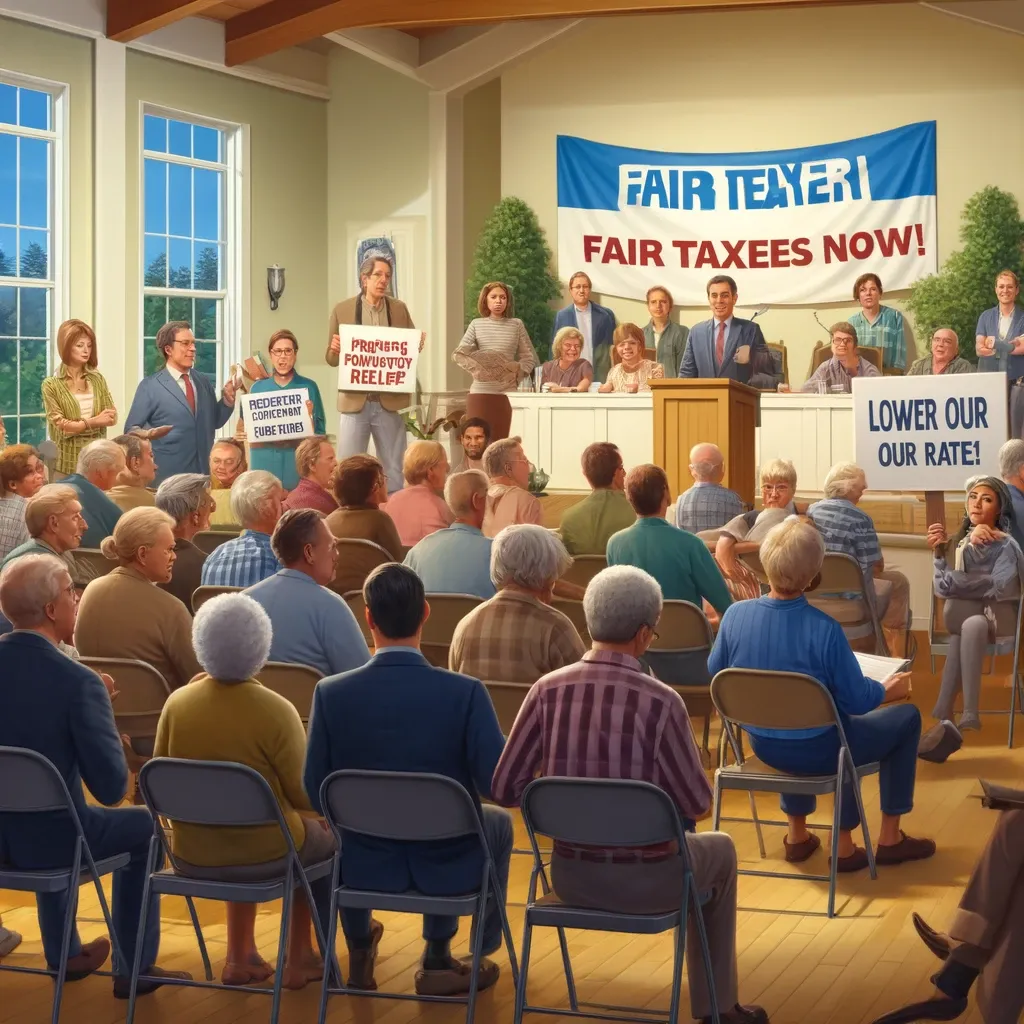The deputies in Georgia are close to an agreement on limiting the growth of property tax.

Updated [hour]: [minute] [am/pm] [time zone], [full month name] [day], [year] - ATLANTA (AP) - An agreement between the House and Senate of Georgia to limit the increase in assessed value of residential properties for tax purposes may solidify, although questions remain about property tax breaks ahead of the elections.
The Senate Finance Committee approved the bill and the amendment to the Georgia Constitution.
On Monday, the Senate Finance Committee approved a revised bill and an amendment to the state constitution that would limit the increase in housing values assessed for tax purposes to 3% per year, unless the local government or school board opts for a one-time exemption from this limit. The plan must be approved by voters in a November referendum.
If the plan is approved, the restriction will remain in effect as long as the owners have an exemption for their primary residence, which usually happens as long as they own a home. Property tax is a pressing issue for Georgia lawmakers this year, as complaints are rising alongside increasing bills due to rising home values. "Property tax is what we hear about most often," said Senator Jason Esteves, a Democrat from Atlanta.
The reaction of lawmakers to the tax increase
Georgia is far from the only case where lawmakers are responding to voter dissatisfaction over rising taxes. This issue is also relevant in other states, including Texas, Kansas, Colorado, and Pennsylvania, where it is becoming a priority.
Senators wanted to impose such restrictions on every city, county, and school district that had not yet established stricter limits, while House members proposed giving governments the option to choose whether to participate in the system. Under the current proposal, local governments and school districts have until March 1, 2025, to opt out. However, any local government or school district that does not opt out will be subject to the restrictions after that date. "We wanted mandatory inclusion, they wanted the option to choose, and so we reached a compromise with the option to opt out," said Senate Finance Committee Chairman Chuck Hufstetler, a Republican from Rome, in an interview with The Associated Press. "This is how the work will proceed."
Amendment to the property tax law
The question remains whether senators will approve the proposal supported by House Speaker John Burns to increase the nationwide property tax exemption. Burns, a Republican from Newington, suggested raising the amount from $2,000 to $4,000. This could allow some homeowners to save $100 a year on their tax bills by reducing the taxable value of their homes. However, this may only apply in a third of Georgia's counties, as evidenced by testimonies.
13 May 2025
14 May 2025
14 May 2025

“I received instructions to convey on this matter - carry out the Senate's assignment,” Reeves told the senators on Tuesday. “We have done the work in the House, and we will carefully examine any number you deem appropriate.”
Uncertainty regarding the Burns plan and possible negotiations
Senators have established assessed value as a priority, but it is still unclear whether Burns will back down with his plan. "I think both are very interested in ensuring historical benefits for property owners," said House Tax and Revenue Committee Chairman Shaw Blackmon, a Republican from Bonaire, in an interview with AP. The assessed value limitation was unanimously approved by the committee on Monday, but passing an amendment to the constitution or tax law requires a vote from Democrats in the House and Senate with a two-thirds majority.
These measures may also get stuck in negotiations between Lieutenant Governor Burt Jones and Burns over unrelated topics, such as hospital operating licenses. Last year, a dispute over this issue derailed several bills.
In Georgia, Republicans have long been calling for a reduction in tax rates to maintain the level of bills amid rising assessed values, believing that allowing bills to increase, even if tax rates remain the same, is a covert tax hike. According to the Georgia Association of County Commissioners, at least 39 counties, 35 cities, and 27 school systems currently have local laws limiting the increase in assessed values, but this only applies to homeowners aged 65 and older. Many governments use the additional revenue from rising values to increase employee salaries and cover inflationary costs. A 3% cap may force governments to raise tax rates. However, most school districts cannot raise rates above a certain level. "Those school districts that are approaching the limit can go through the exemption process," Estives said about those districts.
Comment
Popular Offers

Subscribe to the newsletter from Hatamatata.com!
Subscribe to the newsletter from Hatamatata.com!
I agree to the processing of personal data and confidentiality rules of Hatamatata











